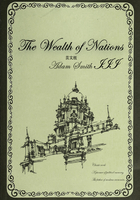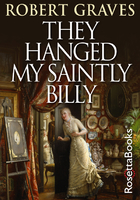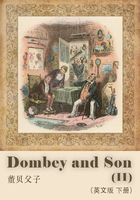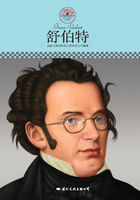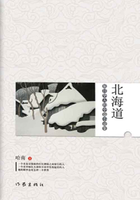All day the cold Virginia sky had hung low over Spencer's Mountain. It was a leaden, silent, moist presence. It promised snow before the fall of night.
Looking from her kitchen window, Olivia Spencer observed the ashen sky. It did not feel like Christmas. That moment which had always come in other years, that mingled feeling of excitement and promise which she called The Christmas Spirit, had evaded her. Christmas had always been a time of rejuvenation to Olivia, a time to reaffirm her faith in God's goodness, to enjoy the closeness of friends and family; a time to believe in miracles again.
She could trace the root of her depression. It had begun this morning when she had gone to the upstairs hall where she kept her Christmas Cactus in a spot where a maximum of winter sun filtered in through the window. But one of the children had broken a window pane, and she found the plant dead, frozen in the harsh draft that had flowed over it all night long. Its full pink buds were wilted, stilled before they had even opened, the oval segments of each stalk crumbling and falling away at her touch.
The dead plant had somehow set the tone for all that was to follow in the day. The blustery cold had kept the children indoors, a complaining, bickering, grumbling mob, constantly underfoot and in her way as she tried to clean the house. She had no patience with holiday frivolity. She wished for spring.
This year if it were not for the children she might even be tempted to treat Christmas as just another day. Prospects being what they were, it could well turn out to be just another day, no matter how hard she tried to make it festive.
As Olivia watched from her window the snow began. It arrived in a thin curtain which appeared at the edge of the barn, then swept down across the yard and over the house. More curtains of snow followed, each one thicker, heavier with flakes, until the downfall became an opaque drift of cold blue-white crystals. Enclosed in the privacy of storm, the house seemed an island of warmth and safety.
"Y'all children want to see somethen pretty?" she called.
The children, all eight of them, converged on the window, and crowded their red heads around their mother. They looked out toward the barn and past it across field and woodland to where Spencer's Mountain was growing dim, softly outlined through the cold, gently drifting whiteness.
On the tallest limb of the crab-apple tree perched a cardinal. His scarlet plumage flashed a single stroke of bright color in a landscape of winter gray, snow white and ice blue.
"That red bird is goen to freeze tonight," observed Luke. Luke was ten, the handsome one with hair almost the same shade as the red bird in the crab-apple tree.
"He won't freeze," said Olivia. "A red bird has got the knack of surviven winter. He knows it too. Otherwise he'd of headed South with the wrens and the goldfinches and the bluebirds back when the leaves started to turn."
She looked back to the yard again, where the clothesline posts were turning to tall and sheeted ghosts.
"I wish my daddy could fly," said Shirley solemnly. Shirley was the sensitive one with a head covered with auburn ringlets. Her father claimed that she was prettier than Shirley Temple and often vowed that if he could get her to Hollywood, California, she would be bound to become a movie star.
Her wish that her father could fly like a bird was met with howls of laughter. Shirley pouted prettily and looked at her brothers and sisters with an injured air.
"If he could fly then he wouldn't have to wait for the bus," explained Shirley.
"Daddy go flyen around, somebody liable to think he's a turkey buzzard and shoot him down," said Mark.
"Y'all leave Shirley alone," warned Olivia when the children began laughing and making faces at her. Olivia hugged the little girl to her and said, "Don't you worry about your daddy. He's goen to be home for Christmas. You stop fretten about it."
"He won't be here if he stops off at Miss Emma's and Miss Etta's," said Becky, who was thirteen and had a mind of her own.
"Huh!" said Olivia, with the contempt she reserved for alcohol, those who sold it and those who had a weakness for it. "The day your daddy spends Christmas Eve with two old lady bootleggers is the day I walk out of this house."
"Where'll we go, Mama?" asked Pattie-Cake, and began to cry. Pattie-Cake was eight and took everybody literally.
"Your daddy's goen to be home," Olivia assured Pattie-Cake. "Y'all just stop worryen."
Clay Spencer could only be with his family on weekends. When something called "the Depression" had happened in Washington or New York or some distant place, the soapstone plant had closed down, and all the men in the village had to find other jobs and other ways of making a living for their families. Clay had found work as a machinist at the Du Pont Company in Waynesboro, which was forty miles away. He had no car, so every Friday night he would take the Trailways bus to Charlottesville, transfer to the southbound bus that let him off at Hickory Creek on Route 29, which was also called The Seminole Trail. From there Clay would walk the remaining six miles or hitchhike if a car happened to go past.
He wouldn't stop at the Staples place tonight, Olivia thought. Not on Christmas Eve. She sometimes thought she would enjoy setting sticks of dynamite under Miss Emma and Miss Etta Staples' house and blowing it sky high. She enjoyed the vision of the stately, decayed old house and its shelves of Mason jars filled with the notorious "Recipe" the old ladies distilled, being blown right off the map.
Olivia realized that the children were still gazing at her with concern.
"Come on," she said, "there's work to do. Who's goen to crack walnuts for my applesauce cake?"
Everybody wanted to crack walnuts. Olivia realized their willingness stemmed from the fact that it would be an excuse to get out into the snow.
"Run along then," she said.
The children scattered, collecting jackets and sweaters and overshoes and caps and scarves and hammers.
"You look after everybody, Clay-Boy," called Olivia as the children filed out onto the back porch. "You're the oldest."
"Yes ma'am," answered Clay-Boy, a thin boy of fifteen with a serious, freckled face topped by an unruly shock of darkening corn-colored hair.
If Clay-Boy had any wish in life it was that his mother would stop reminding him that he was the oldest. It took all the fun out of things to be constantly reminded that he was a combination policeman, referee, guardian and nursemaid to his younger brothers and sisters.
"I'm like some old mother duck," thought Clay-Boy as he made his way through the new snow to the barn, followed by Matt, Becky, Shirley, Mark, Luke, John and Pattie-Cake.
Each of the children had red hair, but on each head the shade was a little different. Clay-Boy's hair was the color of dry corn shucks. Matt's was the red of the clay hills. Becky's straight bob was the pink of a sunset. Shirley's curls were auburn. Luke's hair was the russet of autumn leaves. Mark's was reddish blond. John's ringlets were a golden red and Pattie-Cake's little ponytail was orange.
The children were slender of bone and lean. Some of them were freckled and some were not. Some had the brown eyes of their father, and some had their mother's green eyes, but on each of them there was a stamp of grace in build and movement. It was this their father voiced when he said, as he often did, "Every one of my babies is a thoroughbred."
Reaching the barn, Clay-Boy lifted the latch and opened the door to the storeroom. The children flowed in past him like heedless, impatient baby chicks.
"Y'all watch yourselves," hollered Clay-Boy. "Somebody gets hurt I'll get the blame!"
But they paid him no mind. They were hopeless.
"Lordy God," he grumbled. "I'll be glad when y'all grow up and learn sense."
The barn was cold, and smelled of hickory smoke and fresh hay and drying wood and mice. Clay-Boy pulled the burlap sack filled with black walnuts from the bin where he had stored them in October, slung the sack over his shoulder and started back toward the house.
"Y'all can bring some stove wood if you don't want to freeze tonight," he called over his shoulder to the pack of children behind him.
Each child followed him to the house carrying a few sticks of wood. They piled it in the woodbox on the back porch, then each of them took a handful of walnuts as Clay-Boy passed them out.
As they worked, Pattie-Cake announced proudly, "I wrote a letter to Santa Claus."
John, who was nine and practical, said, "It won't do you a speck of good."
"How come?" asked Pattie-Cake, her lower lip already beginning to quiver.
"How you goen to get it to him? He's clean at the North Pole. No letter goen to get to the North Pole by tonight."
"What'll I do, Clay-Boy?" asked Pattie-Cake anxiously.
"You give it to me, honey," said Clay-Boy, "I'll take it down to the post office and send it Special Delivery."
"I'm much obliged to you, Clay-Boy," said Pattie-Cake gratefully.
Becky snickered and whispered to Shirley, "He's just pacifyen her."
"Shut up, Becky," warned Clay-boy, "before I spank your bottom till it's red, white and blue."
"You just try it, big boy," replied Becky. She made a threatening fist, and stuck out her tongue.
"What did you ask Santa Claus to bring you, honey?" asked Matt, who was the industrious one and had already cracked six walnuts.
"One whole page in the Sears, Roebuck Catalogue," replied Pattie-Cake. "A whole page of dolls."
"I been thinken about writen to him myself," said John.
"What you asken for, John?"
"A piano and a pair of ice skates," answered John.
"That man can't carry no piano down the chimney," said Mark. "He ain't hardly any bigger than Mama, little old fat fellow with a big belly. I seen his picture."
"Huh!" said Becky in a superior way.
"What's that 'huh' for?" asked Clay-Boy.
"Everybody's so ignorant around here," said Becky. She looked at her brothers and sisters with a lofty air of disgust.
"What makes you say that?" asked Matt.
"Believen in Santa Claus," snorted Becky. "There's no such thing. It's just somethen Mama and Daddy made up."
"I don't believe you," said Pattie-Cake and blinked her eyes at Becky indignantly.
"That's because you're ignorant," cried Becky.
Pattie-Cake began to weep. Large salty tears flowed down her cheeks and fell on the one walnut she still struggled to crack.
"You're bad, Becky," said Matt, and gave her a push that sent her sprawling off the porch. Becky rose from the ground, clenched her fist and walked grimly back to Matt.
"Son, you're goen to be sorry you did that," she threatened. She spit into her palms, rubbed her hands together and then made fists again.
"You want to make somethen out of it?" asked Matt, with a teasing grin.
"You're double-durned right I'm goen to make something out of it," said Becky, standing her ground, fists poised like a picture she had seen once of John L. Sullivan.
"I'm goen to tell Mama you said a bad word," announced Shirley. "And she'll wash your mouth out with Octagon soap."
"You little old mealy-mouth thing," said Becky contemptuously. "I hope you get a bad cold and sneeze your eyes loose."
"You watch it, young lady," warned Clay-Boy. "You just watch that biggity talk!"
"I'm not goen to have anything to do with any of you," said Becky. She stuck her nose up in the air and walked off into the yard, catching snow flakes on the tip of her tongue.
Why did they always give her nothing but trouble, she wondered. Why was it so difficult to be a thirteen-year-old girl? She decided that next summer when she was working in the garden she would chop off one of her toes with a hoe. It would seem an accident. Maybe then they would feel sorry for her and stop picking on her all the time. Maybe then they might even like her.
On the porch the other children had nearly filled the cup with walnuts.
"There is too a Santa Claus, isn't there, Clay-Boy?" asked Pattie-Cake.
"Sho'," answered Clay-Boy reassuringly. "Wait'll in the mornen. You'll see."
Clay-Boy wished he had not spoken so affirmatively. He knew that his mother had not had the money to buy any presents for the children. Their only chance for presents from Santa Claus was if their father brought them, and Clay-Boy had learned enough to know the many temptations that lay in the path of a man who had labored hard all week and who had just received his pay.
Olivia had already started her applesauce cake when the children trooped in with the walnuts. The kitchen steamed with the aroma of cloves, cinnamon and nutmeg. At the old wood-burning cooking range Olivia was stirring the applesauce and singing "O Little Town of Bethlehem."
"Mama's got The Christmas Spirit!" exclaimed John.
"Just come up on me all of a sudden," declared Olivia. "Clay-Boy, you go get the tree!"
"Yes ma'am," answered Clay-Boy.
"I'm goen too," announced Becky.
"No, you are not," replied Olivia. "You're stayen here and helpen me."
"I want to go!" insisted Becky.
"A girl's place is to help in the kitchen. Cutten down trees is men's work."
"Let Shirley help. She's such a prissy butt!"
"I am not a prissy butt," rejoined Shirley indignantly.
"I'm tryen to get Christmas ready and you children aren't helpen me," scolded Olivia. "Now get busy on those dishes. Becky, you wash. Shirley, you dry."
Hands in the belt loops of her blue jeans, Becky sauntered to the sink in imitation of Gene Autry, the Singing Cowboy. When the water from the faucet was running full and splashing into the sink, she thought the noise was loud enough to cover her voice and she swore vehemently, "Dammit!"
A swat on the seat of her blue jeans told her that the water had not been loud enough, and as Olivia glowered at her, Becky wondered how many dishes she might break and make it seem accidental.
She wept silently into the dish water and wished for her daddy. If he were here he would hold her in his arms, tell her she was a Crackerjack, and give her whiskey-flavored kisses. She resolved that when she grew up she would get a job at Waynesboro too and ride the Trailways bus and come home every Friday night and blow whiskey breath right in her mother's face. If Mama said a word she'd just tell her to like it or lump it.


